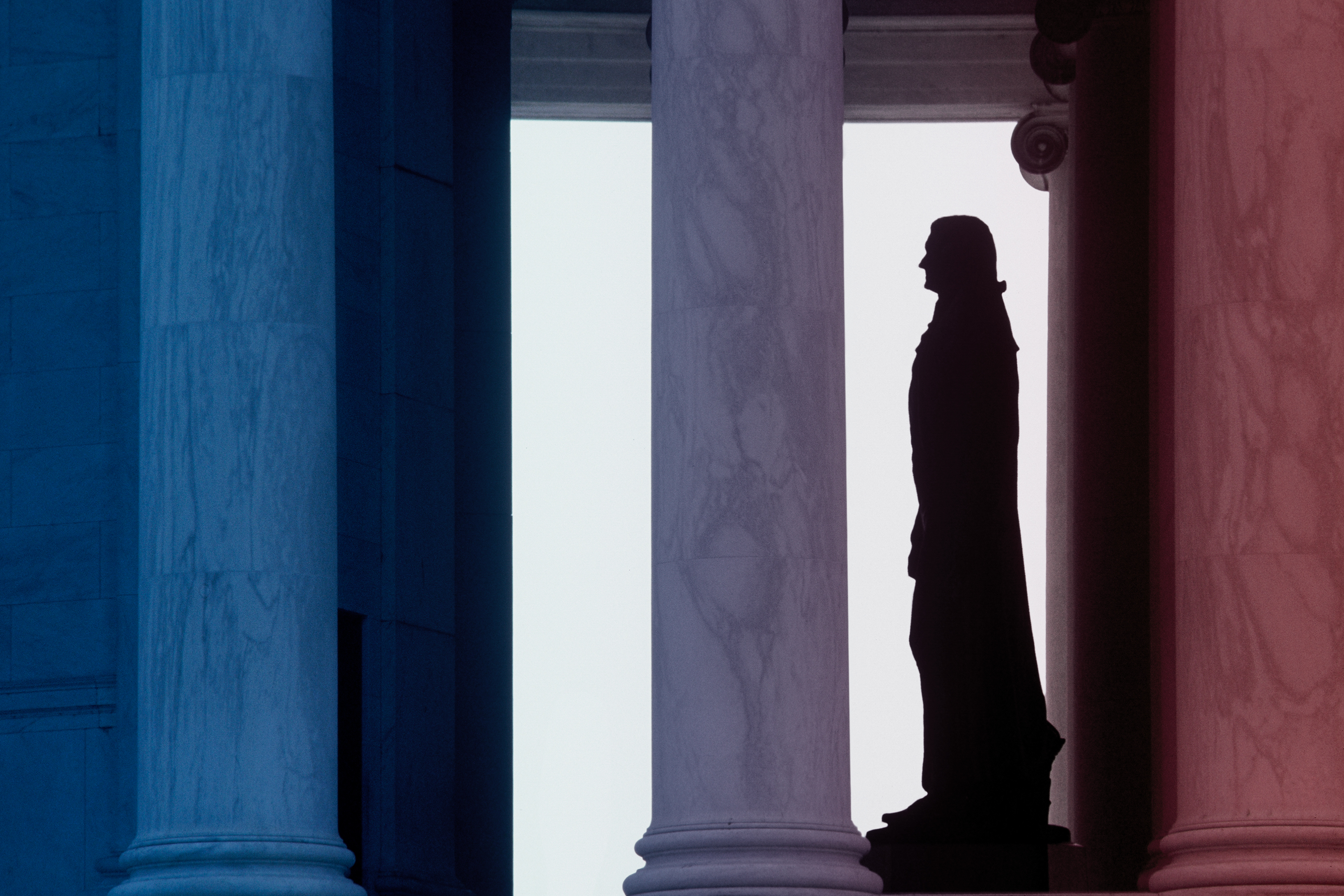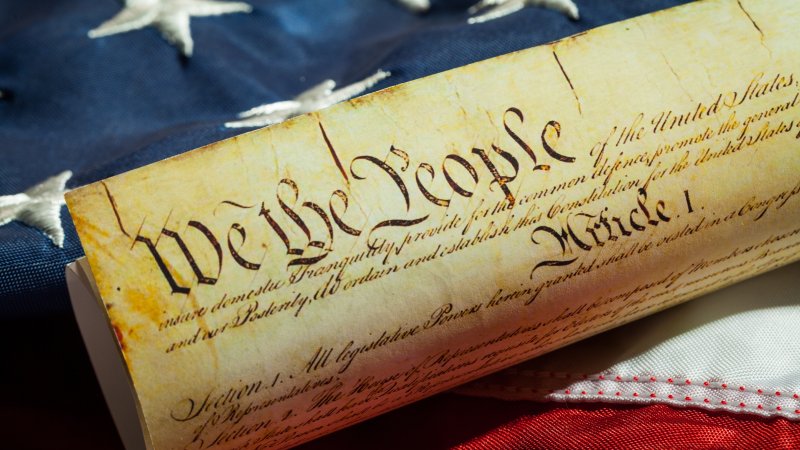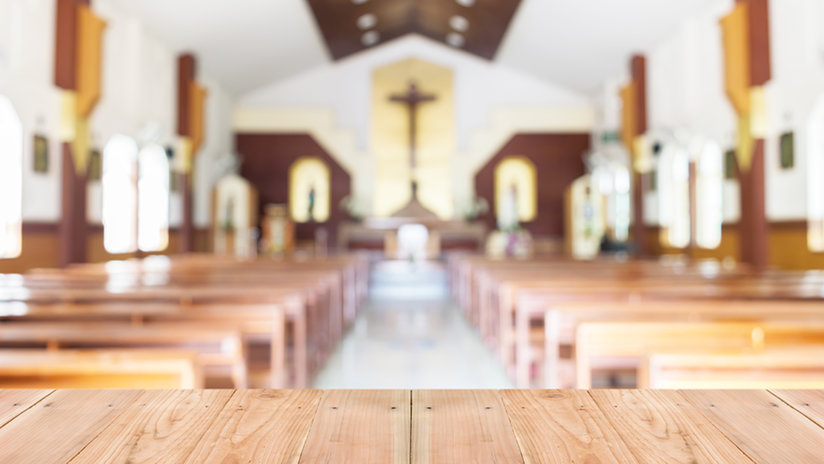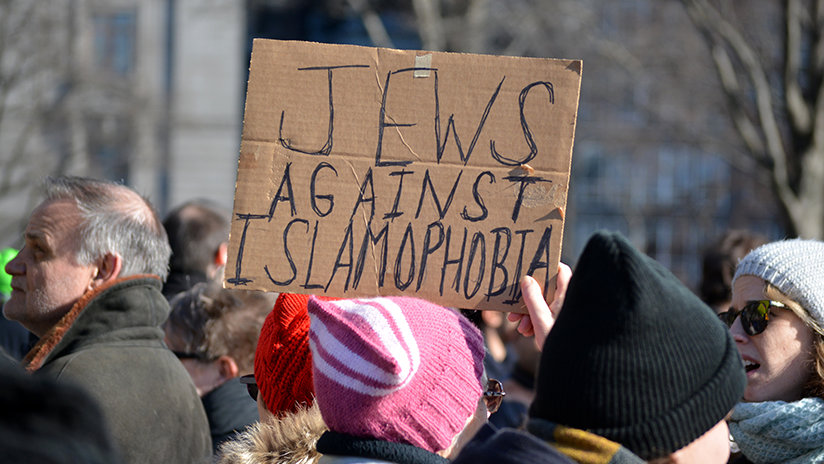
-
HOME
-
WHAT IS STANDOur Mission Our Values Our Help Contact
-
WHAT WE FIGHT FORReligious Freedom Religious Literacy Equality & Human Rights Inclusion & Respect Free Speech Responsible Journalism Corporate Accountability
-
RESOURCESExpert Studies Landmark Decisions White Papers FAQs David Miscavige Religious Freedom Resource Center Freedom of Religion & Human Rights Topic Index Priest-Penitent Privilege Islamophobia
-
HATE MONITORBiased Media Propagandists Hatemongers False Experts Hate Monitor Blog
-
NEWSROOMNews Media Watch Videos Blog
-
TAKE ACTIONCombat Hate & Discrimination Champion Freedom of Religion Demand Accountability
America Celebrates National Religious Freedom Day, Thanks to Mr. Jefferson
As usual, Thomas Jefferson ended up doing most of the work. The General Assembly of the former British colony of Virginia, having lately dissolved its ties to England, now charged three lawyers—one of them being Jefferson—to review all the current laws and revise or rewrite them for the newly independent state.

Having just penned the infant nation’s independence declaration a few months earlier, it fell to Jefferson to do the bulk of the grunt work of sifting, sorting, deleting, editing or dreaming up, as needed, an entirely fresh version of legal code for Virginia.
“Almighty God hath created the mind free.” — Thomas Jefferson
Among the laws that needed disposing of were those forcing adherence to the state religion of Great Britain, the Church of England. How could the former colonies expect to be bound to that religion and none other? With so much of the new nation composed of religious dissenters—primarily Baptists and Presbyterians—something new was needed.
That something new was Jefferson’s “Bill No. 82,” completed in 1777. Jefferson could have simply written a resolution stating, “We are no longer bound to the Church of England,” and likely everyone would have gone home happy. But he had something more revolutionary in mind—something only hinted at in prior millennia, but which had been the rock on which so many of the original colonies—now independent states—had been established: the radical idea of religious freedom. And not just for one dissenting religious community asserting their rights, but for all faiths.
Better than 80 percent of Bill No. 82 (known to us today as the Virginia Statute for Religious Freedom) is spent laying out Jefferson’s reasoning behind the bill—no less than 11 logical arguments in all, including:
“Almighty God hath created the mind free.”
“That all attempts to influence it by temporal punishments or burthens, or by civil incapacitations tend only to beget habits of hypocrisy and meanness.”
“That to compel a man to furnish contributions of money for the propagation of opinions, which he disbelieves is sinful and tyrannical.”
“That our civil rights have no dependence on our religious opinions any more than our opinions in physics or geometry.”
And the clincher:
“Truth is great, and will prevail if left to herself.”
With his thought processes underlying the bill laid out, Jefferson then exploded the bombshell: “No man shall be compelled to frequent or support any religious worship, place, or ministry whatsoever, nor shall be enforced, restrained, molested, or burthened in his body or goods, nor shall otherwise suffer, on account of his religious opinions or belief; but that all men shall be free to profess, and by argument to maintain, their opinions in matters of religion, and that the same shall in no wise diminish, enlarge, or affect their civil capacities.”
Jefferson’s bill was finally voted on and passed. Five years later, it served as the basis for the First Amendment of the 10 now known as the Bill of Rights, guaranteeing freedom of religion.
That was enough. The point had been made. But Jefferson didn’t stop there. He then concluded the document with another sentence acknowledging that the next elected Assembly may very well revoke the bill but, he warned: “We are free to declare, and do declare, that the rights hereby asserted are of the natural rights of mankind, and that if any act shall be hereafter passed to repeal the present or to narrow its operation, such act will be an infringement of natural right.”
Jefferson’s masterpiece of logic carried an inevitability that was impossible to deny or dispute.
The Virginia General Assembly therefore did the only thing they could do when the bill was presented in 1779.
They shelved it.
For five years it sat, forgotten, in a cobwebbed drawer marked “Pending.” Then, on Christmas Eve 1784, Virginia Governor Patrick Henry proposed a bill that would compel Virginia’s citizens to pay a tax to support Christian religious instruction. The bill was titled, unsubtly, “A Bill Establishing a Provision for Teachers of the Christian Religion.”
To enforce all citizens—regardless of faith—to support one religion by law smacked of colonial-era Church of England all over again.
Jefferson, then serving as Minister to France in Paris, couldn’t rise to speak against it, but his friend, James Madison did—eloquently, forcefully and successfully—while also proposing that the original Bill No. 82 be revived.
It took over a year, but on January 16, 1786, Jefferson’s bill was finally voted on and passed. Five years later, it served as the basis for the First Amendment of the 10 now known as the Bill of Rights, guaranteeing freedom of religion.
January 16 is, accordingly, known as National Religious Freedom Day, enshrined permanently as such by a 1993 presidential proclamation. It’s not a national holiday. No federal buildings will close, no mail delivery will cease, no schools will be shut on that day.
But most importantly, America’s churches, synagogues, mosques, temples, mandirs and myriad other houses of worship will also stay open and will remain so without interruption or interference forever, thanks to Mr. Jefferson’s foresight and his bold and radical document of 1786.









